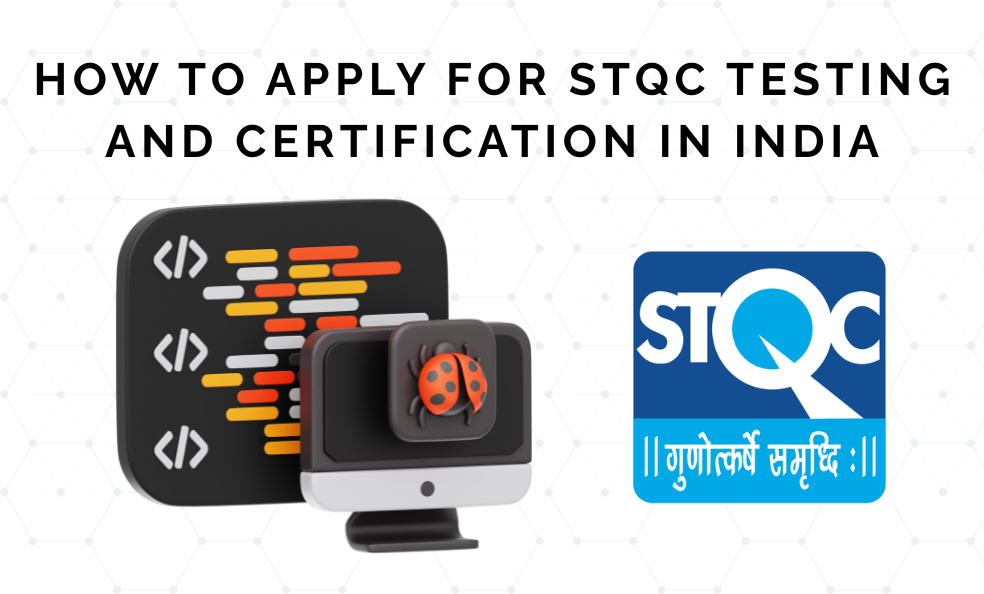In India’s fast-growing technology and electronics market, quality assurance has become a key factor for success. To meet national and international quality standards, manufacturers and software developers must undergo STQC certification — a government-approved process that ensures product reliability, safety, and performance.
The Standardization Testing and Quality Certification (STQC) program is managed by the Ministry of Electronics and Information Technology (MeitY), Government of India. It is designed to promote quality and standardization for IT, software, and electronic products.
If you are a business looking to obtain an STQC certificate, this step-by-step guide will help you understand the entire process, requirements, and STQC certification cost.
What is STQC Certification?
STQC certification is an official mark that a product or system meets prescribed standards of performance, safety, and interoperability. It covers a wide range of products and services, including:
-
Software and IT systems
-
Smart cards and biometric devices
-
Electronic hardware
-
Web and mobile applications
-
Information security management systems
For IT companies, STQC certification for software is especially valuable. It verifies that your software application has been tested for reliability, security, and usability — a major requirement for government and enterprise-level projects in India.
Why STQC Testing is Important
Before a product or software is certified, it must undergo STQC testing in government-recognized laboratories. These tests evaluate functionality, security, interoperability, and environmental safety.
For example, in software testing, STQC labs check coding standards, data handling, and user interface performance. For electronic devices, tests ensure safety from electrical, mechanical, or thermal hazards.
This rigorous process ensures your product performs efficiently and aligns with Indian and global quality norms.
Step-by-Step Process to Apply for STQC Certification
Here’s a simplified breakdown of how to apply for STQC testing and certification in India:
Step 1: Identify the Scope
Determine whether your product or software falls under the STQC certification scheme. STQC offers various categories for electronic devices, software, biometric systems, and web-based services.
Step 2: Prepare Technical Documents
Gather all necessary documents such as:
-
Product specifications
-
Design and test reports
-
Manufacturing details
-
Quality management certificates (if available)
Having a complete technical dossier ensures faster evaluation and minimizes delays.
Step 3: Submit the Application
Submit your application to the STQC Directorate or an authorized regional office. The application should include product details, required standards, and proposed test methods.
You can apply online or through authorized consultants such as Instacertify, which simplifies the entire submission process.
Step 4: Product Evaluation and Testing
Once your application is accepted, your product or software undergoes STQC testing at an approved laboratory. Testing includes:
-
Functionality testing
-
Safety and reliability evaluation
-
Security and data validation (for software)
-
Environmental and durability tests (for hardware)
Step 5: Certification Decision
If your product meets all prescribed standards, the STQC Directorate issues an official STQC certificate. In case of non-compliance, you’ll be informed of the corrective actions needed.
Understanding the STQC Certification Cost
The STQC certification cost varies based on the type of product, testing requirements, and complexity of evaluation. For example:
-
Software testing may involve functional, security, and performance tests.
-
Hardware testing could include safety, environmental, and electromagnetic compatibility checks.
Generally, the cost ranges from moderate to high depending on the product category. However, using a professional service like Instacertify helps you plan and optimize your budget with transparent pricing and no hidden fees.
Benefits of Getting an STQC Certificate
-
Recognition by government and public sector organizations
-
Improved product credibility and customer confidence
-
Eligibility for government e-governance projects
-
Compliance with Indian and international standards
-
Better opportunities in domestic and export markets
Conclusion
Applying for STQC certification in India can seem complex at first, but with the right guidance, it’s a smooth and valuable process. By ensuring your product or software passes through STQC testing, you not only meet government standards but also build a trusted reputation in the market.
Whether you’re a startup or an established manufacturer, obtaining an STQC certificate strengthens your product’s position and ensures long-term reliability.
If you’re ready to start your certification journey, Instacertify can help — offering expert support, fast documentation, and coordination with STQC-approved labs to make your certification process efficient and stress-free.







0 Comments